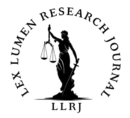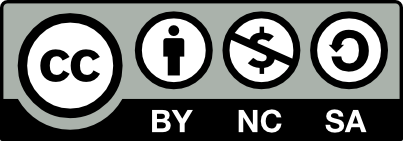Written by Khushi Tayal,
Intern-Lex Lumen Research Journal,
June 2025
Understanding the term Whistle-blowers
What would you do if you uncovered a wrongdoing at your workplace but feared retaliation for speaking up? This is a quandary faced by several employees across the world annually. Whether it is fraud, safety violation or unethical conduct, speaking the truth may cost your personal as well as the professional life. That’s where the Whistle-blower Protection Laws come into picture which is designed to protect those individuals who have the courage to speak truth or report the misconduct.
The term ‘Whistle-Blower’ is formed by combining two words which are ‘whistle’ that means ‘a device used to alert or call attention to’ & the other word is ‘blower’ meaning ‘referencing the person issuing the alert by the blowing of the whistle’. Hence, a whistle-blower is any person who has knowledge of illegal, illicit or fraudulent activities happening in an organisation & reports the same to any superior or public authority. A whistle-blower can be any person whether he/she is an employee, supplier, contractor, client or any other person who becomes aware of dubious business activities.[1]
The use of the term “whistle-blower” dates back to the 19th century. However, Ralph Nader is sometimes credited with coining the modern usage of the term in the 1970s as a way to avoid the negative connotations of alternatives like “informer.”
To protect the interests of the whistle blowers, the Indian parliament has created a specific statute which is known as the Whistle-Blowers Protection Act, 2014.
What is the Whistle-Blower Protection Act, 2014?
In 2001, the Law Commission of India put forward an idea that in order to eliminate corruption, a law is necessary which can protect the interest of the whistle-blowers. They also drafted a bill to address the issue.
In 2004, the government notified a resolution by the name ‘Public Interest Disclosure and Protection of Informers Resolution (PIDPIR)’. This resolution gave the power to the Central Vigilance Commission to act on the complaints received from the whistle-blowers.[2]
To conform such resolutions, in 2011 Whistle-Blowers Protection Bill was proposed by the Lok Sabha on 27th Dec, 2011.
Finally, on 21st Feb, 2014, the Rajya Sabha also passed it and it became the Whistle-Blowers Protection Act, 2014.
Applicability of whistle-blowers protection act 2014
The Whistle-Blowers Protection Act, 2014, in India, is a law enacted to provide a mechanism for receiving complaints related to corruption, misuse of power, or criminal offenses by public servants, and to protect individuals who report such acts (whistle-blowers) from victimization.
Who can report?
Any public servant, private individual, or NGO can make a complaint. The complainant must act in good faith and provide evidence to support the allegations.
Against whom can complaints be made?
Complaints can be made only against public servants, which include:
- Central and state government employees.
- Employees of public sector undertakings (PSUs).
- Judges and members of Parliament and state legislatures (though certain exceptions may apply due to constitutional provisions).
- Any person or entity funded by the government.
To whom should complaints be made?
Complaint should be made to a Competent Authority, designated under the Act (e.g., Central Vigilance Commission for central government employees).
Protections under the Act:
- Protection from victimization for whistle-blowers.
- Confidentiality of the identity of the complainant.
- Penal provisions for revealing the identity of the whistle-blower or not acting on complaints.
Exclusions and limitations (as per 2015 amendment bill – not yet passed):
The 2014 Act does not exclude matters related to national security or intelligence. However, the 2015 Amendment Bill proposed restrictions on disclosing information under the Official Secrets Act, 1923 — this amendment was controversial and has not been enacted.
Limitations:
It does not apply to private sector employees, except if they are making complaints against public sector entities. It does not mandate proactive protection unless a threat or victimization is evident.
Methods prescribes for disclosure in the act [3]
The Whistle-Blower Protection Act, 2014 contains certain guidelines by which a whistle-blower may submit his complaints to ensure their safety. It also ensures that the complaints are handled with effectiveness.
Here are the key methods for making such disclosures under the act which includes:
- Submitting a complaint to a designated authority
A whistle-blower must submit his complaint to a designated public authority that has been set up under the law. These authorities will be responsible you looking after the public servants subsequent processing of the complaint.
- Providing supporting evidence
This act encourages the whistle-blowers to support their claim with the help of stronger evidences which may include documents, mails or audio/video recordings etc. Such evidence adds more weight to the case and helps the authority for further investigation.
- Confidentiality assurance
The most important objective of this act is to protect the identity of a whistle-blower for safety purposes. This is important to protect a whistle-blowers from any backlash or harm and also to encourage people to act as a whistle-blower in future. The act must protect the privacy of an individual.
- Prohibition of anonymous complaints
The act also provides a clear direction to handle complaints regarding corruption or an intentional misuse of power by the public servants. The law also ensures that the whistle-blowers and their kin does not receive any kind of unfair treatment or harmed by anyone for making a complaint.
- Creating a formal reporting mechanism
A clear and structured mechanism can be created by this act for reporting the wrongdoing by any authority such as the Central Vigilance Commission and it also ensures that the complaints are thoroughly investigated and resolved.
Challenges and limitations of the act [4]
The Whistle-Blowers Protection Act, 2014 is an essential step towards the openness and accountability. However the act has its own drawbacks also which includes:-
- Delay in action
Due to lack of resources, there is a frequent delay in act related investigations. The Central Vigilance Commission often experience shortage of men power which thereby results in slowing down of process. The delayed court system also delays in providing remedies which may deter future whistle-blowers.
- Lack of awareness
Many whistle-blowers remained uninformed of their rights and also about the process of how to file a complaint. This act also prevent people from fully utilizing it due to its little outreach. The process for filing a complaint may be a little complicated which may cause worry to complainant.
- Insufficient protection
The Whistle-Blower Protection Act, 2014 provide protection due to which the whistle-blowers have to endure backlash including Job loss or harassment, etc. The act lacks witness protection measures and also it does not directly or indirectly address the psychological impact on whistle-blowers which may prevent them from raising their voice against a wrong.
Conclusion
The purpose of enacting Whistle-Blower Protection Act, 2014 is to expand openness in the corporate World. It is also a step forward in encouraging accountability. However, the act must brought some amendments in order to optimize its impact on a large scale. Other than this act, there is no healthy legal framework to protect the corporate employees. The law should also include public sector along with the private sector employee who may be subjected to backlash for blowing the whistle against the misconduct by organization. The act must brought an amendment for the protection of whistle-blowers which may include more stringent penalties for retaliation. It must also brought fully fledged witness protection scheme through an amendment.
[1] James Chen, Whistleblower, INVESTOPEDIA (May 11, 2023), https://www.investopedia.com/terms/w/whistleblower.asp.
[2] ClearTax, Whistleblower Protection Act 2014: Features, Key Provisions and Overview (Apr. 25, 2025), https://cleartax.in/s/whistleblower-protection-act.
[3] FinLaw Associates, Understanding the Whistleblower Protection Act 2014 in India: Key Provisions and Objectives (last visited June 25, 2025), https://finlawassociates.com/blog/understanding-the-whistleblower-protection-act-2014-in-india-key-provisions-and-objectives/.
[4] Erik Mygind du Plessis, Speaking Truth Through Power: Conceptualizing Internal Whistleblowing Hotlines with Foucault’s Dispositive, (Accepted manuscript, Organization, July 2022), https://research.cbs.dk/files/66688892/erik_mygind_du_plessis_speaking_truth_through_power_acceptedversion.pdf.


